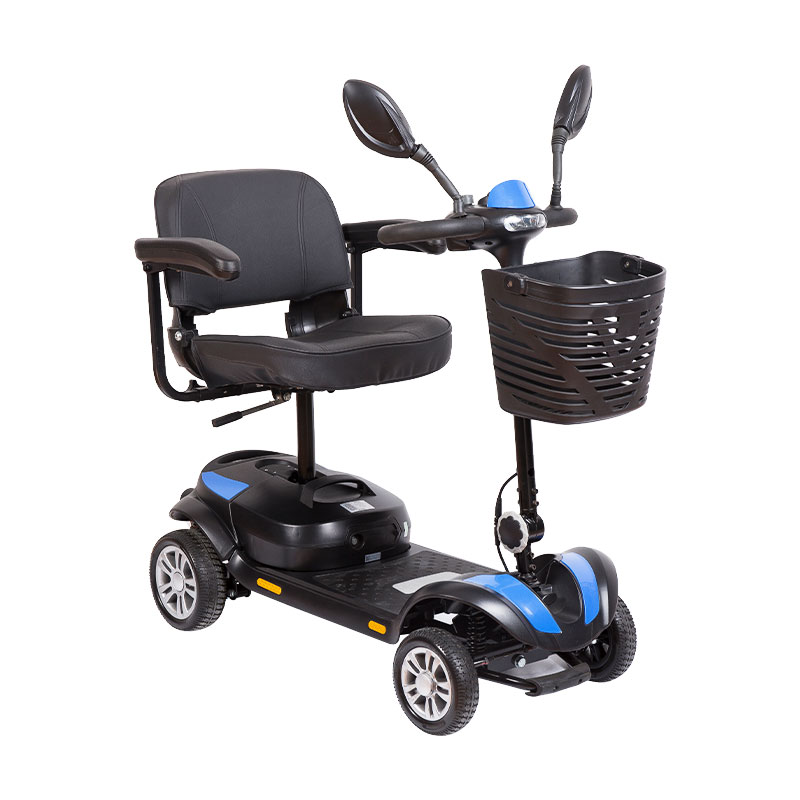Why does the motor type affect the power performance of the elderly mobility scooter?
The 4 wheels elderly mobility scooter, specifically designed for the elderly, relies heavily on its dynamic performance for safe and comfortable travel. Among its components, the type of motor is a crucial factor that impacts its performance.
Different motor types operate based on distinct principles and characteristics. For instance, permanent magnet motors, a type of DC motor, incorporate permanent magnets, enabling them to run with higher efficiency and stability. On the other hand, series-wound motors generate magnetic fields through changes in current in their windings, offering high starting torque but potentially lower efficiency compared to permanent magnet motors.
The efficiency of a motor directly correlates to the driving range and energy consumption of a 4 wheels elderly mobility scooter. A highly efficient motor means the scooter can travel longer distances with the same battery capacity, crucial for daily outings by the elderly.

The torque of the motor determines the scooter's ability to climb slopes and carry loads. For scooters that frequently traverse uphill roads or carry heavier loads, a motor type with high torque is more suitable.
Additionally, the noise and vibration levels of the motor also impact the riding experience for the elderly. Advanced motor technologies can reduce vibration and noise, resulting in a smoother and quieter ride, essential for the elderly.
When selecting a 4 wheels elderly mobility scooter, it's crucial to understand the motor type and its characteristics. Users can choose a suitable motor type based on their travel needs, driving conditions, and budget to ensure the scooter's dynamic performance meets their practical requirements.


 English
English Deutsch
Deutsch







-3.jpg?imageView2/2/format/jp2)
.jpg?imageView2/2/format/jp2)






